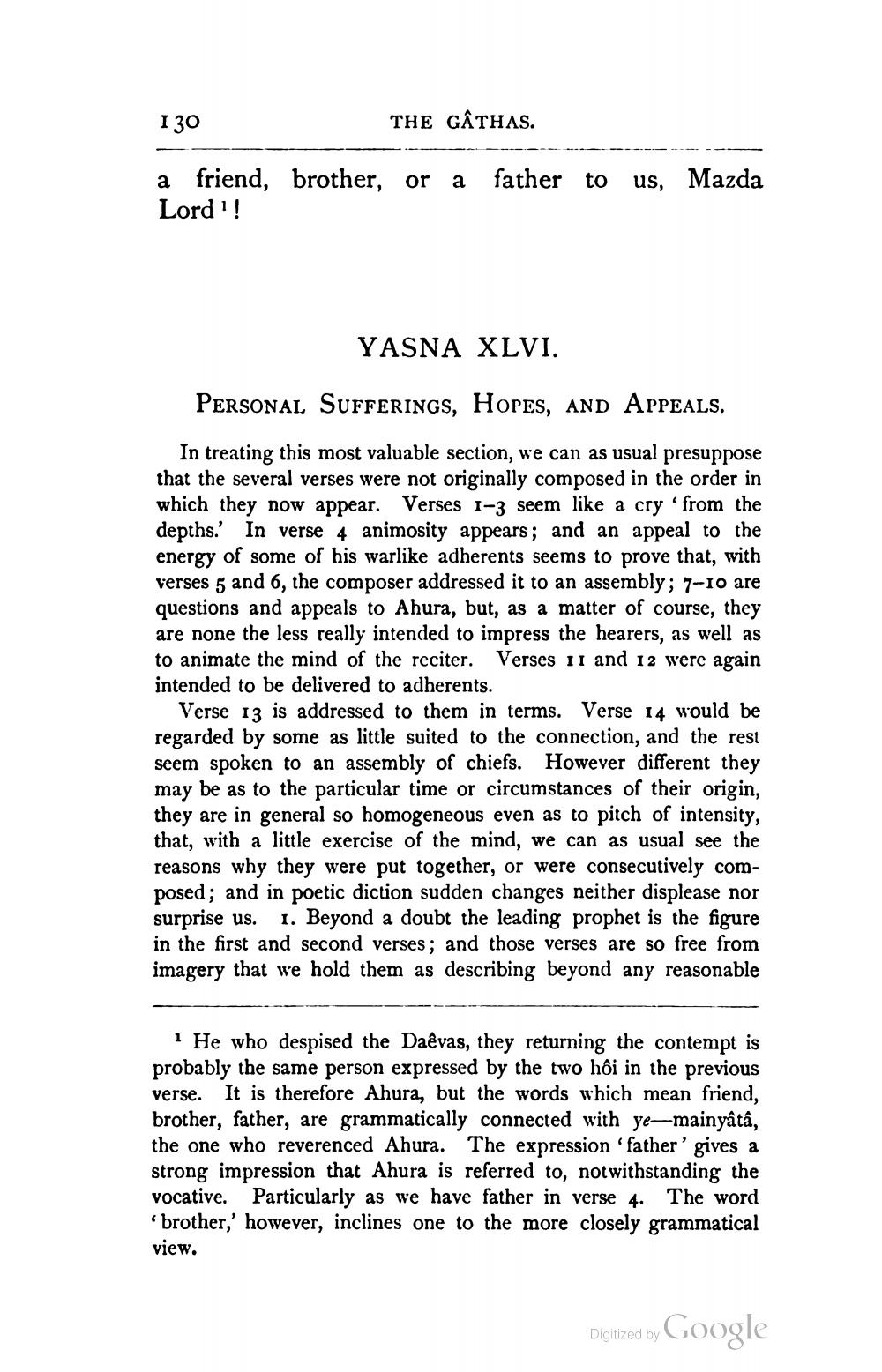________________
130
THE GÂTHAS.
a friend, brother, or a father to us, Mazda Lord'!
YASNA XLVI.
PERSONAL SUFFERINGS, HOPES, AND APPEALS.
In treating this most valuable section, we can as usual presuppose that the several verses were not originally composed in the order in which they now appear. Verses 1-3 seem like a cry from the depths.' In verse 4 animosity appears; and an appeal to the energy of some of his warlike adherents seems to prove that, with verses 5 and 6, the composer addressed it to an assembly; 7-10 are questions and appeals to Ahura, but, as a matter of course, they are none the less really intended to impress the hearers, as well as to animate the mind of the reciter. Verses II and 12 were again intended to be delivered to adherents.
Verse 13 is addressed to them in terms. Verse 14 would be regarded by some as little suited to the connection, and the rest seem spoken to an assembly of chiefs. However different they may be as to the particular time or circumstances of their origin, they are in general so homogeneous even as to pitch of intensity, that, with a little exercise of the mind, we can as usual see the reasons why they were put together, or were consecutively composed; and in poetic diction sudden changes neither displease nor surprise us. 1. Beyond a doubt the leading prophet is the figure in the first and second verses; and those verses are so free from imagery that we hold them as describing beyond any reasonable
1 He who despised the Daêvas, they returning the contempt is probably the same person expressed by the two hôi in the previous verse. It is therefore Ahura, but the words which mean friend, brother, father, are grammatically connected with ye—mainyâtâ, the one who reverenced Ahura. The expression 'father' gives a strong impression that Ahura is referred to, notwithstanding the vocative. Particularly as we have father in verse 4. The word 'brother,' however, inclines one to the more closely grammatical view.
Digitized by
Digitized by Google




